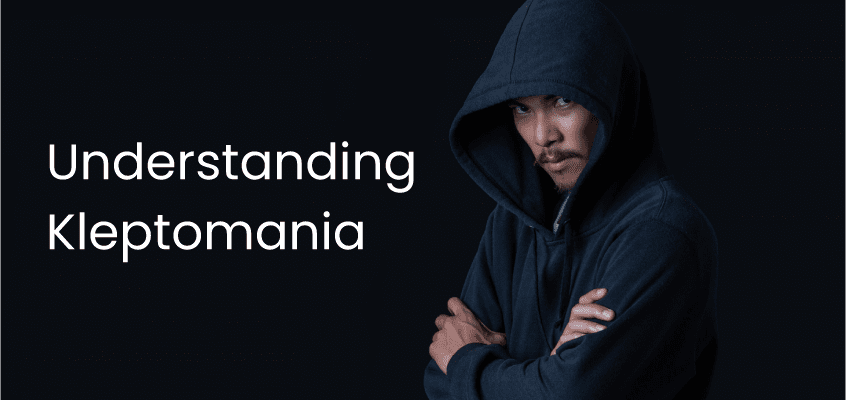When we hear the word ‘steal’, we often think of a thief breaking in and trying to get away with valuable products. While stealing is indeed an illegal act, uncontrollable impulses in a person can sometimes cause it. Let’s learn more about kleptomania and its symptoms, effects, and various options for treatment.
What is kleptomania?
Kleptomania is an impulse control disorder that causes an uncontrollable urge to steal. Unlike career criminals, who steal out of need, a person with kleptomania steals because they can’t control the desire to commit theft. In almost every case of kleptomania, the individual steals items of little or no value to themselves that are easily affordable.
What are the symptoms of kleptomania?
The signs or symptoms of kleptomania are as follows:
- Uncontrollable desire to steal something that is of no need or something that one cannot afford
- Feelings of increased anxiety, stress, or arousal before committing a theft
- Feelings of relief or pleasure while committing a theft
- Feelings of intense guilt, fear, remorse, or shame after committing a theft
It is necessary to seek medical attention to cope with the anxiety and discomfort of the urge to steal. Read on to learn how to deal with the symptoms of kleptomania and the best treatment methods.
Is kleptomania a mental disorder?
Mental disorders (or mental illnesses) are conditions that affect your thinking, behaviour, feelings, and mood. They may be occasional or long-lasting (chronic) and affect the ability to connect to others. Kleptomania is a rare mental disorder that provokes the urge to steal, a feeling of tension before stealing, and a sense of relief during or immediately afterwards. It is a state of mind that may occasionally last longer if left untreated.
Effects of kleptomania
If left untreated, kleptomania can lead to the development of emotional, professional, and financial problems. An individual with the disorder will experience significant guilt, shame, humiliation, and self-loathing. It can hurt their relationships and quality of life as their loved ones may begin to refer to them as thieves or criminals. Moreover, even though the theft was not intentional, they may face incarceration by society.
Other effects or complications of kleptomania include:
- Personality disorders
- Anxiety
- Negative or suicidal thought patterns
- Eating disorders
- Depression or stress
- Other types of impulse-control disorders, such as compulsive gambling and shopping
Treatment of kleptomania
Kleptomania may turn into a chronic condition if left untreated. Read on to discover the different steps to cope with or treat kleptomania.
- Diagnosis: The first step in treating kleptomania is to seek medical help. Explain the signs and symptoms clearly to the doctor. He might ask a few questions to understand the condition better. He may enquire about the impulses and the reactions to them, create a list of situations and examine if the problem is triggering the kleptomania acts.
- Medication: Depending on the severity of the kleptomania, the doctor may suggest remedies such as Naltrexone, an antagonist that helps reduce and control the urges and feelings of relief and pleasure experienced during theft, and anti-depressants to control anxiety.
- Psychotherapy: Undergoing therapy will help an individual control the impulse to steal. The medicines used to deal with kleptomania are:
- Cognitive behavioural therapy: This method replaces harmful and unhealthy thoughts with positive ones.
- Systematic desensitisation: The mental health expert will teach the individual how to cope with the impulse to steal.
- Covert sensitisation: Here, the professional encourages the individual to imagine the consequences of stealing to impress on them the importance of controlling their urges.
- Medication and psychotherapy: If medication or psychotherapy does not seem to be helping with the condition, the doctor may suggest combining medicine with psychotherapy for better results.
Conclusion
In addition to the impulse to steal, kleptomania includes feelings of tension and anxiety. It can limit the capacity of the individual to perform even the most fundamental everyday tasks—furthermore, kleptomania damages relationships by causing problems with trust. With the help of medical professionals and therapists, we can recognise the symptoms of this disorder and take steps towards recovery.











